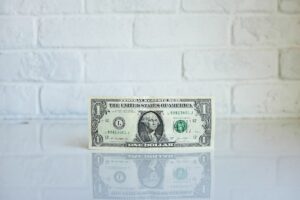Forex trading has become a popular investment option in Pakistan. The country has a well-developed forex market, which plays a crucial role in the economy. The forex market in Pakistan is regulated by the State Bank of Pakistan (SBP), which is the central bank of the country. The forex market in Pakistan is also known as the interbank market, where banks, financial institutions, and individuals can trade currencies.
The Role of Forex Pak in Pakistan’s Economy
Forex Pak is the currency of Pakistan. It is also known as the Pakistani Rupee (PKR). The forex market in Pakistan plays a crucial role in the economy. The country’s economy is heavily dependent on imports and exports. Therefore, the foreign exchange reserves of Pakistan play a vital role in maintaining the country’s economic stability.
The forex market in Pakistan is primarily regulated by the State Bank of Pakistan. The central bank manages the country’s foreign exchange reserves and controls the flow of foreign currency in and out of the country. The SBP also sets the exchange rates for the Pakistani Rupee, which is used as a benchmark for all forex transactions in the country.
The forex market in Pakistan is also essential for the country’s imports and exports. The country’s imports are heavily dependent on foreign currency, which is obtained through forex transactions. The forex market in Pakistan also plays a crucial role in ensuring that the country’s exports remain competitive in the global market. A weak Pakistani Rupee can make exports more affordable, while a strong currency can make exports more expensive.
Forex Pak and the Pakistani Economy
The Pakistani economy heavily relies on agricultural and industrial production. The country is one of the largest producers of cotton, wheat, and rice. The country also has a significant textile industry, which is a major contributor to the economy. The forex market in Pakistan plays an essential role in ensuring that these industries remain competitive in the global market.
The forex market in Pakistan also plays a crucial role in ensuring that the country’s balance of payments remains stable. The balance of payments is the difference between the country’s exports and imports. A positive balance of payments means that the country is exporting more than it is importing, while a negative balance of payments means that the country is importing more than it is exporting.
The forex market in Pakistan also plays a vital role in attracting foreign investment. The country’s foreign exchange reserves are an essential factor that foreign investors consider when deciding to invest in the country. A stable forex market can provide foreign investors with confidence in the country’s economy and can attract more foreign investment.
Conclusion
The forex market in Pakistan plays a crucial role in the country’s economy. The market is regulated by the State Bank of Pakistan, which manages the country’s foreign exchange reserves and controls the flow of foreign currency in and out of the country. The forex market in Pakistan is essential for the country’s imports and exports, ensuring that the country’s balance of payments remains stable and attracting foreign investment. With its well-developed forex market, Pakistan is poised to continue attracting foreign investment and strengthening its economy.






